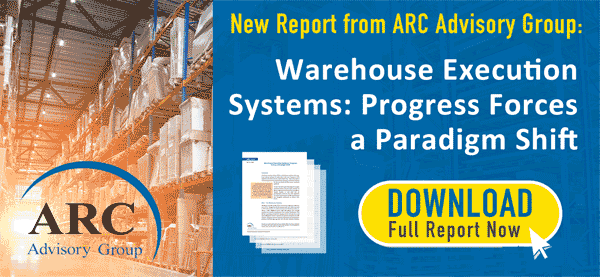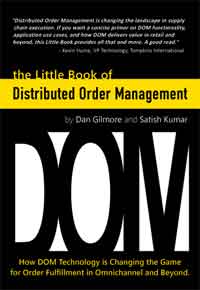Immutable Supply Chain Principles?
Do we have "immutable" supply chain principles that should guide decision-making?
Last week for fun I offered some thoughts on MIT's Supply Chain 2020 project launched in 2004, led for a long while by Dr. Larry Lapide. (See In 2021, a Relook a MIT's Supply Chain 2020 Project from 2004.)
As part of that, I also summarized part of an interesing article Lapide authored in 2006 on The Essence of Excellence, based on MIT Supply Chain 2020 research.
| GILMORE SAYS: |
WHAT DO YOU SAY?'
Wrapping things up, Lapide argues that "it is extremely important to think about leveraging operating principles rather than best practices.
Send us your
Feedback here
|
In the last part of the article, Lapide offers what he calls "time-independent immutable operating principles that underlie all supply chain best practices."
Wow - do we really have immutable supply chain principles? Will Lapide's list hold up even 15 years later?
Lapide offers six of them - let's take a look:
Expand the Sphere of Influence
Lapide says this principle comes into play when a dominant company increases its sphere of influence over its operations or those of its partners. Of course, he says, all parties will act in the interest of their own company. When a company integrates its operations internally or vertically, it is strongly broadening its span of management control.
This principle can of course be applied externally as well, with Lapide citing the example of Walmart providing POS data to its suppliers.
I will make two comments. First, many large companies are indeed exerting their control over suppliers in such areas as sustainability, working conditions and more, as exemplified by Apple's Supplier Code of Conduct. The expansion of this supplier control has grown enormously over the past decade.
It also makes me think of Gartner's "supply chain orchestrator" concept, in which a dominant company expands its sphere of influence to operate an extended supply chain more like it is their own.
Increase Transparency
Lapide says that by increasing visibility throughout the supply chain, participants can better manage it. "Collaboration between a supplier and customer in which data is shared on a one-way basis increases transparency along a supply chain," he adds, citing examples of companies sharing forecasts with suppliers.
I agree that sharing of supply chain information between trading partners continues to advance, as seems almost inevitable - but rather slowly. Collaborative Planning, Forecasting & Replenishment (CPFR), for instance, clearly has never reached its potential in the consumer goods to retail supply chain.
Now we have blockchain sort of coming along as another path to transparency and visibility cross trading partners - but again it will be the channel master that will dictate which companies can see what information if blockchain ever does take off.
Relax Constraints
Lapide says that if a supply chain constraint is removed or relaxed, it can lead to more optimized operations. He cites as an example a customer agreeing to accept deliveries within a window of time rather than at a fixed time. That might enable a supplier to better optimize its operations because the delivery constraints for the customer's orders have been relaxed.
"The supplier now has more options with which to optimize the delivery of all of its customer orders, using techniques such as increased load consolidation," Lapide said.
I would agree evaluating the potential to relax constraints is often a good idea - especially limits that have sort of become ingrained in a company's belief window such that blinds it from seeing new supply chain opportunities by rethinking those constraints.
But there are always trade-offs. Even in Lapide's example, while it may be good for the supplier to have more flexibility about delivery times, it may lead to less efficiency on their customers' operations.
 So I would buy "take a look at relaxing constraints" as a principle, but the answer might often be to keep them. So I would buy "take a look at relaxing constraints" as a principle, but the answer might often be to keep them.
Match Supply with Demand:
I think we can all agree on this one, as it is really the foundation of supply chain.
Lapide says this principle is predicated on the realization that marketing and sales decisions made jointly with supply chain operations provide better outcomes than decisions made by each organization in isolation.
He naturally references sales and operations planning (S&OP) as the vehicle to link supply and demand, and for many years Lapide was one of the top supply chain thought leaders in this area.
S&OP is much more widely used today than in 2006, and in some companies has led to variations such as Sales, Operations and Inventory Planning (SIOP) and Integrated Business Planning (IBP), which involves more deep integration of the supply chain planning process with corporate financial goals.
.
So this is an immutable if basic principle - but the "how" part of it of course keeps changing.
Trade off Inventory against Cycle Time
Lapide says that integration practices that reduce the cycle time of the ordering and fulfillment process - by using the Internet or other electronic channels, for instance - also reduce the inventories being held.
For example, he says "co-management inventory programs utilize continuous replenishment processes that take time out of the process, hence reducing inventory."
OK, have to quibble on this one being immutable. The supply chain of course is all about managing many trade-offs, dozens if you map them out, and it doesn't make a lot of sense to me to pick out just one for inclusion on the list.
And by definition, there are different places a company can be on each trade-off curve - with the better choice usually not to move along an existing curve, but to shift the entire curve in a positive direction.
Use Supply Contracts
Lapide says this principle involves using gain-sharing arrangements to provide a customer with an incentive to increase the sales of the supplier's products beyond that provided by the customer's own margin contribution.
I am not exactly sure what that means, and the example given relative to the now long gone Blockbuster Video's relationship with movie studios doesn't really make much of a point.
This one is not an immutable principle.
Wrapping things up, Lapide argues that "it is extremely important to think about leveraging operating principles rather than best practices. Best practices change over time, but the principles upon which the practices are based do not. Indeed, supply chain practices can eventually become obstacles to meeting corporate goals."
I think I agree with that, but am not sure Lapide's list summarized here are immutable principles, and certainly not all of them.
Does such a thing really even exist? I have to think about that one - would welcome your thoughts.
Any reaction to these proposed immutable supply chain principles? Do they realy exist? Let us know your thoughts at the Feedback button (email) or section below.
|








 So I would buy "take a look at relaxing constraints" as a principle, but the answer might often be to keep them.
So I would buy "take a look at relaxing constraints" as a principle, but the answer might often be to keep them.

